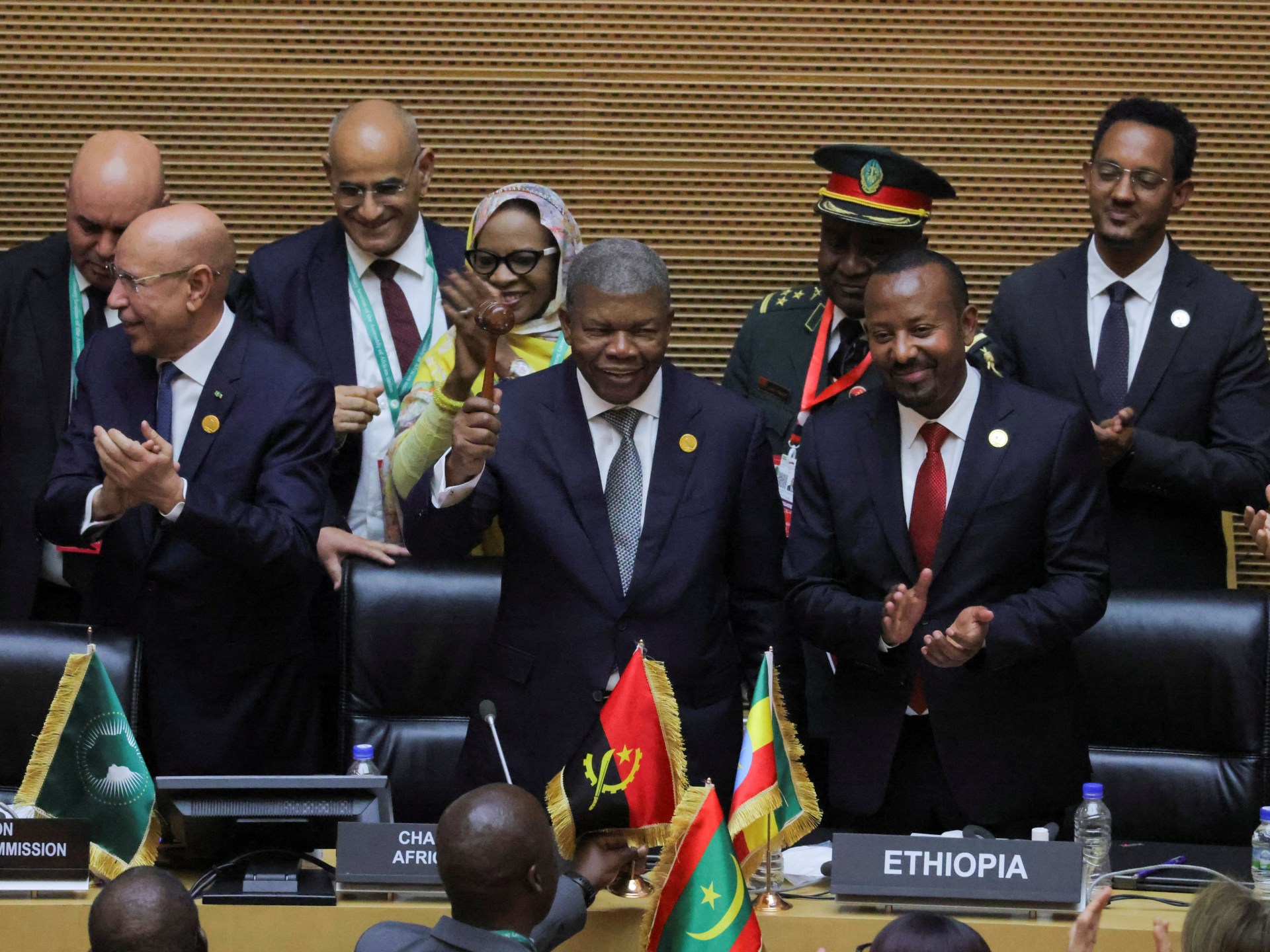Africa
How realistic is the African Union’s call for reparatory justice?

African Leaders Unite for Reparatory Justice at Ethiopian Summit
African leaders have gathered in Addis Ababa, Ethiopia, for a landmark summit to address a zas matter: seeking reparations from former colonial powers for the exploitation, resource extraction, and suffering inflicted during decades of colonization. Members of the 55-nation African Union (AU) bloc are working to consolidate a unified position on reparatory justice, a demand that has gained momentum in recent years. This summit comes at a critical time, as the continent grapples with multiple challenges, including armed conflicts, economic disparities, and the lingering effects of colonialism. The debate over reparations is not just about financial compensation but also about accountability, justice, and healing for the historical injustices endured by African nations.
The Quest for Reparatory Justice: A Call for Accountability
At the heart of the discussions is the demand for an apology and financial reparations from European nations that colonized and exploited African territories. African leaders argue that the wealth extracted during colonialism—through forced labor, resource plundering, and brutal suppression—laid the foundation for the economic disparities and instability that persist today. The summit seeks to amplify Africa’s collective voice in demanding recognition of these historical wrongs and compensation for their enduring impacts.
However, the question arises: Is now the right time for such a debate? With over 30 African countries currently embroiled in armed conflicts, critics argue that addressing internal challenges should take precedence. Yet, supporters of reparatory justice contend that the ongoing instability and economic struggles in Africa are, in part, a legacy of colonialism. By addressing the root causes of these issues, they believe, the continent can move toward a more equitable and sustainable future.
Historical Roots of Injustice: The Legacy of Colonialism
The push for reparations is deeply rooted in the painful history of colonialism, which left African nations impoverished, politically fragmented, and culturally disrupted. European powers exploited Africa’s resources, disrupted local economies, and imposed systems of governance that often sowed division and conflict. The scars of this exploitation are evident in the underdevelopment of many African nations and the persistent wealth gap between the Global South and the Global North.
For instance, the Democratic Republic of Congo (DRC), a resource-rich nation, was subjected to brutal exploitation under Belgian colonial rule. The extraction of ivory, rubber, and minerals came at the cost of millions of lives and long-term environmental degradation. Today, the DRC continues to struggle with political instability and economic inequality, which many trace back to its colonial past. African leaders argue that reparations would not only acknowledge these injustices but also provide the necessary resources to address their lingering effects.
Armed Conflicts and Instability: A Complex Landscape
The summit in Addis Ababa unfolds against a backdrop of widespread armed conflicts across Africa. More than 30 countries on the continent are experiencing some form of violence, with particularly devastating situations in Sudan and the DRC. These conflicts have displaced millions, disrupted economies, and hindered development efforts. While some argue that addressing these pressing issues should take priority over reparations, others believe that the two are interconnected.
The violence in Sudan, for example, has deep colonial roots. The artificial borders drawn by European powers often ignored ethnic and cultural divisions, creating fertile ground for future conflicts. Similarly, the DRC’s resource-rich but politically unstable environment has led to decades of strife, often fueled by external interference and competition for resources. African leaders argue that addressing the historical injustices of colonialism could help address the root causes of these conflicts and pave the way for lasting peace and stability.
Is Now the Right Time for This Debate?
As the African Union seeks to advance the cause of reparatory justice, questions remain about the timing of this debate. Critics argue that Africa faces more urgent challenges, such as ending conflicts, combating climate change, and improving governance. They suggest that diverting attention to reparations may distract from these pressing issues.
However, proponents of reparatory justice counter that the continent’s current struggles are, in many ways, linked to its colonial past. They argue that addressing historical injustices is not a distraction but a necessary step toward building a more equitable and sustainable future. By holding former colonial powers accountable, African leaders hope to secure the resources and support needed to address poverty, inequality, and instability.
Conclusion: A Path Forward for Africa’s Healing and Growth
The summit in Addis Ababa represents a significant moment in Africa’s ongoing journey toward healing and self-determination. The call for reparations is not merely a financial demand but a moral and political imperative—one that seeks to acknowledge the past, address its lingering effects, and lay the groundwork for a brighter future.
As African leaders navigate this complex landscape, they must balance the demands of the present with the need to confront the sins of the past. By fostering a unified approach to reparatory justice, the African Union can send a powerful message: that the continent will no longer be silent about the injustices it has endured and that it is determined to shape its own destiny. The road ahead will be challenging, but this summit marks an important step in the journey toward accountability, justice, and healing for Africa.











